Last Monday was – so far – the most important day in Jeffrey Donaldson’s political career.
I don’t think there was ever much doubt that he would get his party executive across the line and pave the way to rebooting the assembly and executive. The meeting would not have been called had he not already secured the numbers; and having secured them, an ambush was very unlikely.
- There may never be a unionist First Minister at Stormont again - Patrick MurphyOpens in new window
- Welcome to the real ‘joint authority’, where the EU graciously permits more trade within the UK - Newton EmersonOpens in new window
- The Irish News view: Though they fizz with rage against progress, the doom-mongers and naysayers must know they have lost the argumentOpens in new window
But a victory at the executive was never going to be enough. Nigel Dodds, Ian Paisley and Sammy Wilson are still big hitters in the party and will likely remain thorns in his side in the absence of wider and growing support for him. So, he will have been relieved that none of them launched a personal broadside at him in the days that followed. There were no resignations, either, at MLA level.
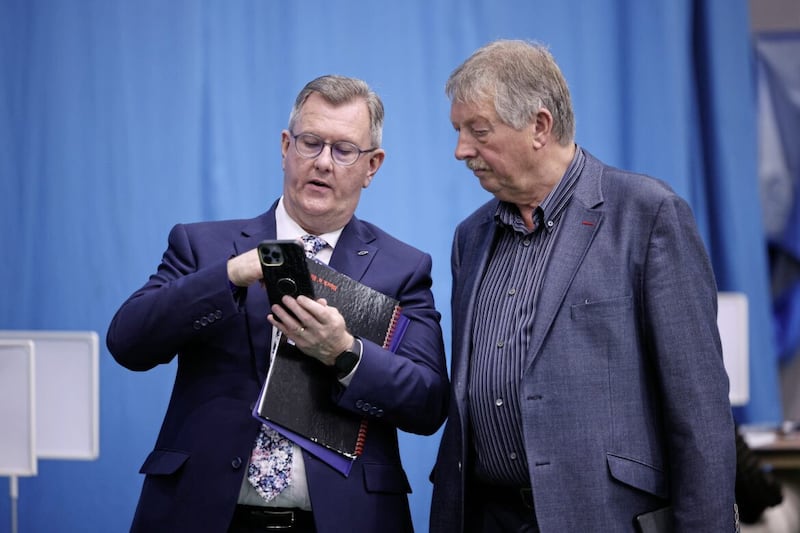
Had a rebellion been coming it would have had to happen before Emma Little-Pengelly and the ministerial team were appointed on Saturday afternoon. It would also have required someone of substance to step up and lead the rebellion: and no-one took up the challenge. That’s not to say that the internal dissidents have decided to live and let live for the sake of party unity; but it does suggest that no-one had a viable and available alternative to the present strategy, let alone dependable allies.
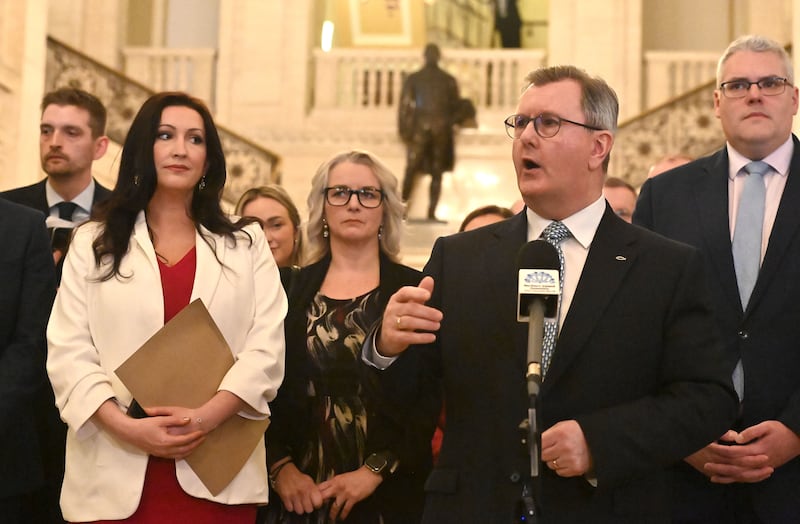
Meanwhile, Donaldson’s external opponents have also left it too late to mount a serious rebellion. Once the MLAs and deputy first minister were in place, removing them was going to be very difficult. This is not 1974. This is not Sunningdale. There is no United Ulster Unionist Council standing by with a plan of action. There aren’t tens of thousands of people waiting to close down Northern Ireland. There will be no cutting of power or closing down of shops.
This is not 1974. There aren’t tens of thousands of people waiting to close down Northern Ireland. There will be no cutting of power or closing down of shops
The Orange Order and Loyalist Communities Council stayed their hand in terms of opposition. Statements from them would certainly have discomfited Donaldson and may even have persuaded him to seek a few more days before returning. But there were no blistering accusations of betrayal from those quarters. It doesn’t mean there aren’t concerns, but at least there seemed to be a willingness to give him a bit of breathing space. For now.
The TUV and Jamie Bryson made a lot of noise. Bryson even tried to upend proceedings at Monday evening’s meeting. He and Jim Allister brandished a legal opinion obtained from John Larkin. Anti-deal posters appeared in the usual places. A few social media sites were flooded with accusations of betrayal. Yet, when all was said and done, none of it prevented the return of devolution. Even though they were warned that a u-turn by the DUP was extremely likely, they still seemed surprised and unprepared when it actually happened.
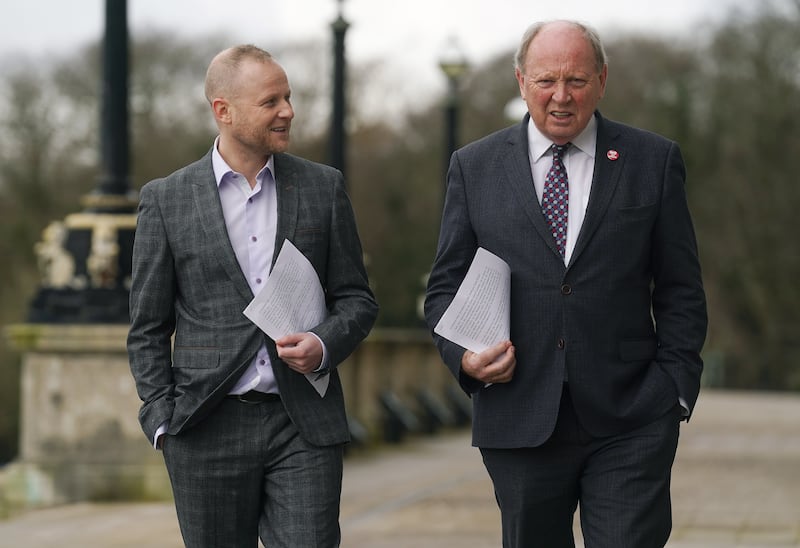
None of this means that there won’t be problems waiting for Donaldson further down the line. Over the weekend of February 17 and 18, LucidTalk will be publishing a poll and among the questions will be some gauging unionist support for the DUP’s return. A string of recent polls has indicated huge support for the DUP’s boycott and if those figures remain high it gives the anti-deal lobby (not huge, but possibly troublesome) a possible lever to step up protests and the sort of rallies arranged across NI during the last election campaign. But, as I said, this is not 1974.

The biggest headache for Donaldson will be around the Command Paper’s supposed guarantees on ‘strengthening and safeguarding the union for the future’. His opponents have tended to focus on green and red channels, EU legislation still applying in NI and the existence or otherwise (opinions differ) of a border in the Irish Sea. But to be honest, I’ve never been convinced that those issues matter as much to most unionists as they do to assorted businesses.
The real reason unionists were unsettled by the protocol and Windsor Framework was the sense that their citizenship within the UK was being diluted. Fair enough, the constitutional guarantee (NI remains in the UK until a majority decides otherwise) remained in place; yet it seemed diminished. That’s why guarantees about safeguarding and strengthening the union will come to matter a great deal.
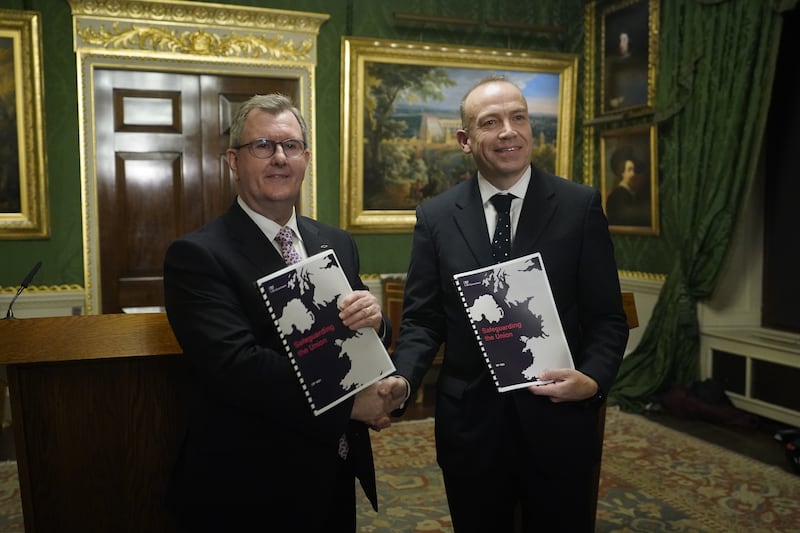
The Command Paper is a bit vague. There are suggestions about government structures to monitor and manage; joint UK-NI executive structures; an independent monitoring panel; an independent review; the Stormont Brake; and hints at ways of preventing new EU regulations automatically applying to NI. What all of this looks like when it is presented in hard legislative form will be crucial to continuing support for Donaldson and the DUP.
There can probably be some obfuscation on channels for goods and paperwork required (most of which won’t be apparent to the majority of unionists), but any sense that the union hasn’t been and won’t be strengthened or safeguarded becomes another lever by which his opponents will try and prise support away from Donaldson. Let’s not forget how easily and brutally both Arlene Foster and Edwin Poots were removed from the leadership.
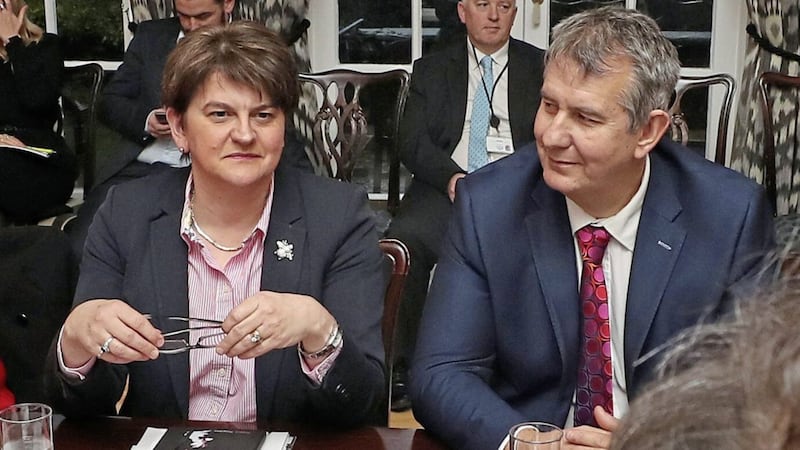
The key date for his internal and external opponents will be the general election. It probably won’t come before the autumn, but we live in very uncertain times: and it was an unexpected general election in February 1974 which led to the destruction of Brian Faulkner in May 1974.
The key, I think, to Donaldson’s survival and the avoidance of a massive DUP rupture (which some thought might immediately follow the decision to reboot) will be an executive and assembly which is clearly working, tackling problems effectively and making a real difference for the better across Northern Ireland. Because, if problems do arise, support for him will depend on the level of approval his party and its voting base have for the latest manifestation of devolution.


